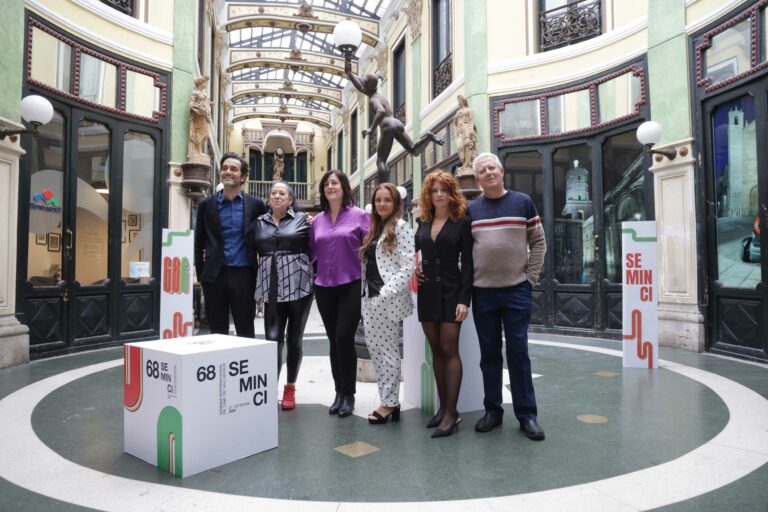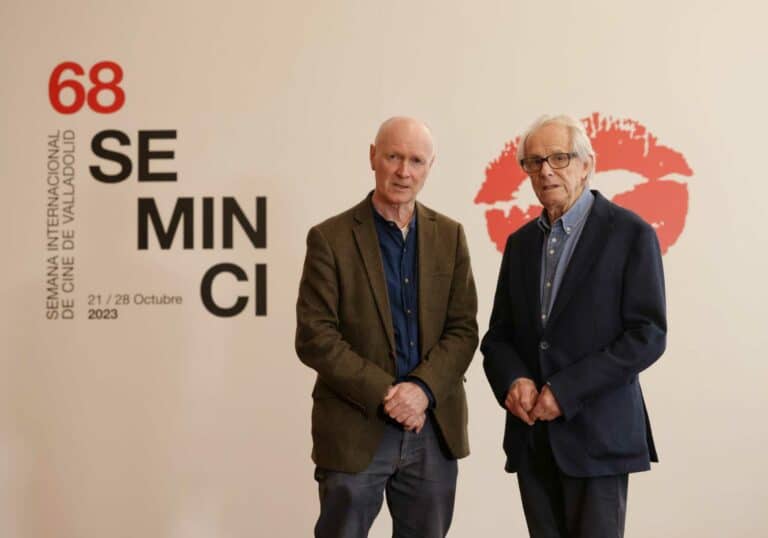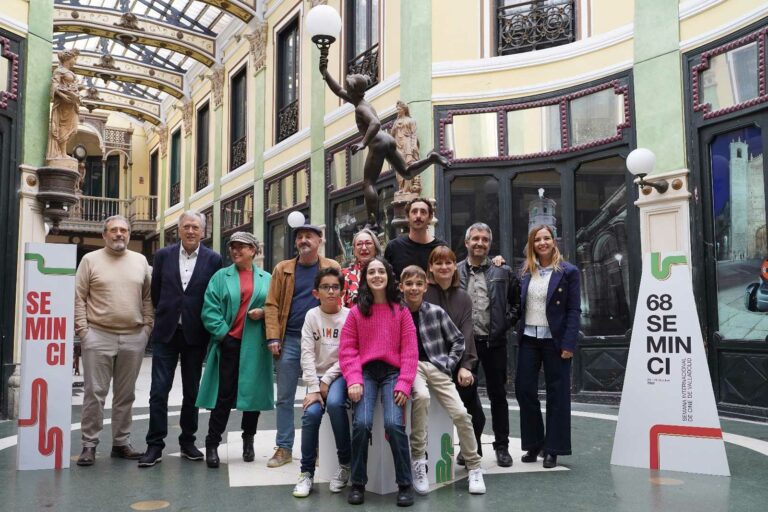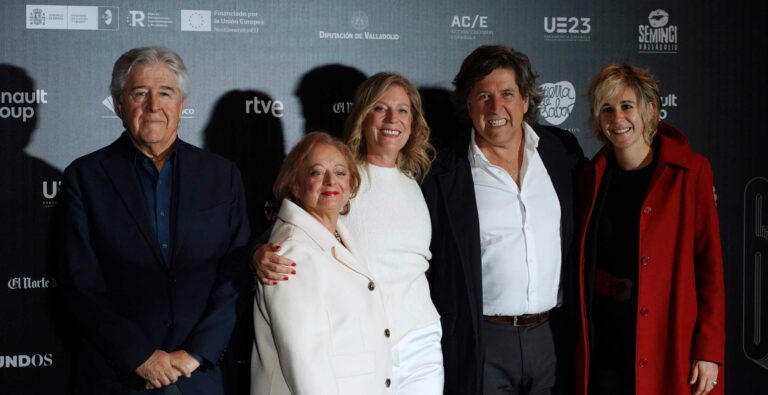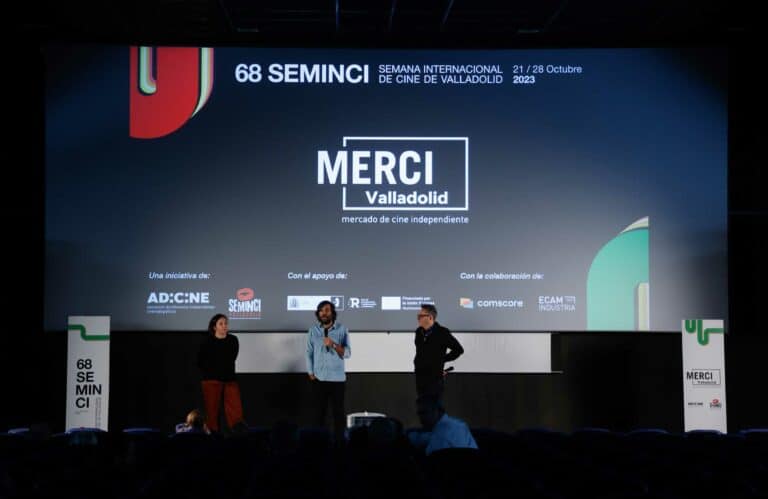Indian-Canadian filmmaker Deepa Mehta presented her latest work, Funny Boy, today Friday, October 29th, 2021, at the Valladolid International Film Festival. It is the adaptation of the novel of the same name by Shyam Selvadurai, a book published almost three decades ago that, as she explained, is well known in Sri Lanka, where it is set.
It was the author himself who proposed the film version to the director: “A couple of years ago I received a script from him, a proposal to take it to the big screen. 28 years after having read the book, she reviewed the plot: “I realised that this story has not gone out of fashion, because it is a story about prejudice, about discrimination and about the dividing lines that we establish between us because of race, religion, caste, ethnic difference…. And I found it to be a very inspiring and interesting proposition.”
At the press conference Mehta was accompanied by the film’s producer, David Hamilton, who was also moved by the social significance of the text to support the project: “What I look for as a producer are themes that have meaning, that also help to inform the public, and in this case we find a theme that is still relevant, it is of current relevance. It is set in a certain period and conflict, but that conflict has not ended today.”
The Gap Remains
Indeed, the dividing lines mentioned by the filmmaker are neither so old nor so different in any part of the world. Where you may not be questioned because of your sexual orientation, you may be discriminated against because of the colour of your skin. Sri Lanka was going through a delicate time in the 1970s and 1980s, on the verge of a civil war that finally broke out in 1983 and lasted until 2009, and where homosexual relations were (and still are) forbidden. Its protagonists have been able to see it for themselves.
Brandon Ingram and Rehan Mudannayake, who were present with Deepa Mehta at the public appearance, spoke of their experience. Ingram was explicit: “I play the character of Arjie, who is 17 years old, and I myself at that age had a similar conflict with regard to recognising my sexual identity, gaining acceptance, and so on. I’ve appreciated the differences between myself and the character, who is much more open than I was to accepting his identity. In a way, playing the role has been a therapeutic process for me.”
For Mudannayake, the journey has been essentially cinematic: “It has been a truly amazing experience and I am very grateful to Deepa for having me along. I was more terrified at the beginning, but thanks to Deepa’s guidance I was able to develop the carácter.”
Spanish Editing
The film has a small Spanish part: the editing. The prestigious Teresa Font, who has already been at this Seminci accompanying the director of another of ‘her’ films, Pan de Limón con Semillas de Amapola [Lemon bread with Poppy Seeds], received a call from Deepa Mehta to take charge of editing the film. “Actually, the first person who called me was Javier Angulo [Seminci Director], because they were trying to reach me and asked for my phone number. Then Deepa herself called me,” he said.
Faced with the difficulties due to Font’s workload, the director travelled to Madrid. Teresa Font’s assessment couldn’t be more positive: “It’s been very exciting because of what a relationship with people from very different cultures can mean, and also with someone like Deepa Mehta. She stayed by my side editing, because there were some difficult things with passages in Hindi or Tamil. She also watched my reactions a lot, and she would discuss with me some ideas she had about the time jumps in the film.”
An Uncertain Path
The film has had a somewhat strange run, largely due to the impositions of the pandemic. In Sri Lanka the screenings have been more like technical screenings with audiences related to the film and their guests and, as Ingram pointed out, on television and even computer screens. The stars will be seen on the big screen for the first time in Valladolid. “It’s very important that the films are seen first and foremost by the people from the towns where they are set,” said the director.
On the other hand, it has already been distributed on Netflix, and this beginning may be a conditioning factor for its subsequent commercial run. Hamilton, however, was hopeful: “The problem here is that where the film is released on platforms there is no longer cinema distribution, so we are hopeful that screening in areas like this festival can spread to other places, because it hasn’t yet been screened in Europe.”
The film, which closes the Film Festival and is not in competition (Mehta is chairing this year’s International Jury), is, however, eligible for another of the 66th edition’s awards, the Rainbow Spike. “Ah, yes!” exclaimed the filmmaker when she heard the news at the press conference. “I didn’t know that. I hope we win it!”
Funny Boy will be screened this Saturday 30th October 2021 at Carrión Theatre at 12.00h and 22.00h, and at Calderón Theatre at 19.00h during the closing gala of the 66th edition of Seminci.



